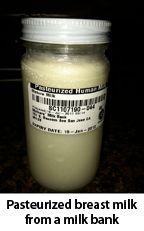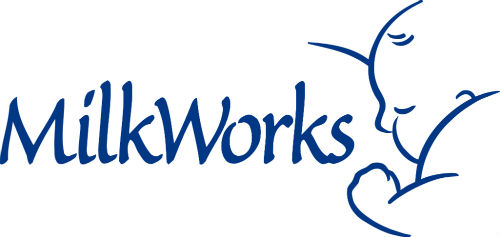
I like to think that mothers are the first wonder of the world. With a little help from dad, a mother's body nourishes, protects and gives birth. Until recent history, it was then all about the second wonder of the world: mother's milk - all a baby needed for the next six months.
This process changed about fifty years ago as cultural forces embraced a growing trend to feed babies processed cow’s milk, or formula. Intentions were good: moms could more easily join the work force and moms would no longer need to bare their breasts to feed their babies in public. Unfortunately, no research was behind the move to abandon breastfeeding, and by the time the U.S. Surgeon General issued the 2011 Call to Action to Support Breastfeeding, the effects of more than two generations of babies raised on cow’s milk were evident: more acute infections and chronic illnesses, including obesity, diabetes and asthma, and higher health care costs.
As we gently re-introduce human milk to human babies, we now face another issue: what do we do when a mother does not have sufficient milk to feed her baby? Human milk banks accept donated milk from mothers who make extra milk and pasteurize this milk. Pasteurizing (or heat treating milk) assures that the collection and handling of the milk does not result in any harmful bacteria. But the process is costly. As a result, more and more mothers are turning to informal sharing of milk. Moms who make extra milk pass it on to other mothers, often connecting with each other via Facebook.
Recent research published in Breastfeeding Medicine (Vol. 8, No. 3, 2014) found that informal milk sharing may actually keep more babies from getting human milk. Because mothers are unaware that a milk bank will pay them to ship their milk (if there is no drop off depot in their community), they share their milk informally instead of donating it to a milk bank.
This is in contrast to countries such as Brazil, which has an extensive public milk banking system that provides pasteurized donor milk at no cost to infants with medical needs, including preterm infants and those with nutritional disorders and allergies.
At a United States Breastfeeding Committee meeting in Washington, DC, last August, I asked the head of the Human Milk Bank Association of North America (HMBANA) what was standing in the way of any mother being able to obtain banked milk for her baby. She replied, “Volume. Until we have enough milk donated to bring the cost of pasteurization down, the price of banked milk will continue to be out of reach of a full term, healthy baby.”
The article in Breastfeeding Medicine concludes that thousands of mothers participate in the direct exchange of raw human milk. While we do know the risks involved in feeding babies processed cow’s milk, we do not know the exact risks of sharing milk informally. Instead of condemning milk sharing, our public health system needs to proactively help families evaluate and manage the risks of milk sharing, while working to increase access to pasteurized donor milk, especially for sick and at risk infants.
Mothers have a long history of helping other mothers. St. Elizabeth Regional Medical Center now has a milk depot that provides milk for the Iowa Milk Bank. They welcome milk donations from local mothers. MilkWorks carries a small supply of banked milk that we obtain from the Denver Milk Bank. They also welcome milk donations and will pay for mothers to ship their milk to Denver.
If you are a breastfeeding mother and you are blessed with an abundant milk supply, please consider giving a little milk this Mother’s Day. Donating your liquid gold to other babies may be the best Mother’s Day gift you will ever be able to give.
